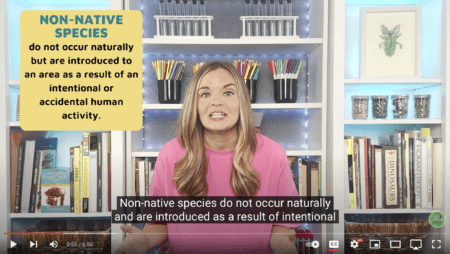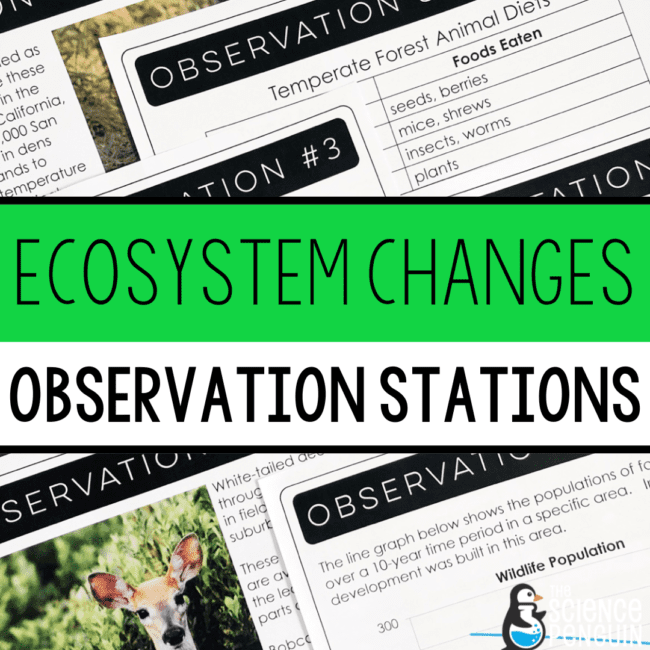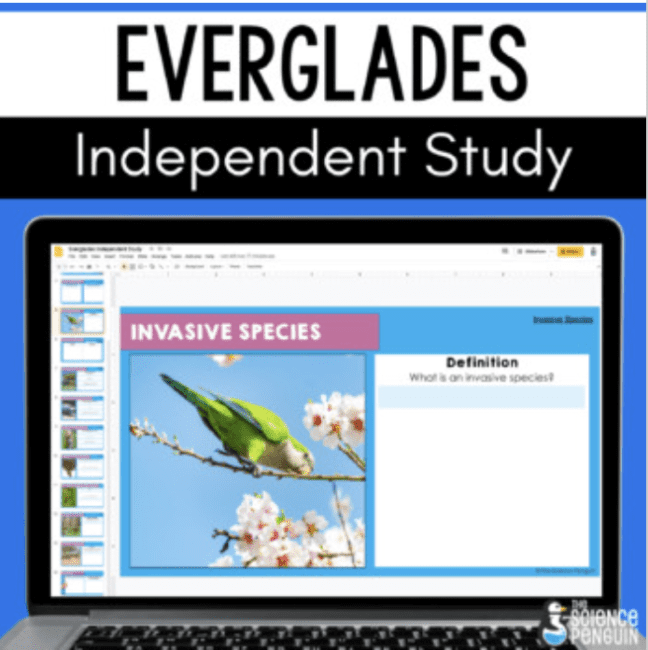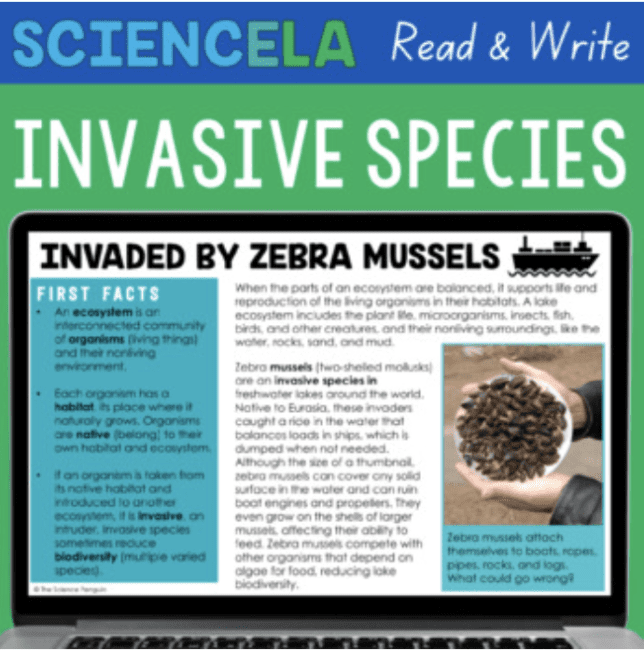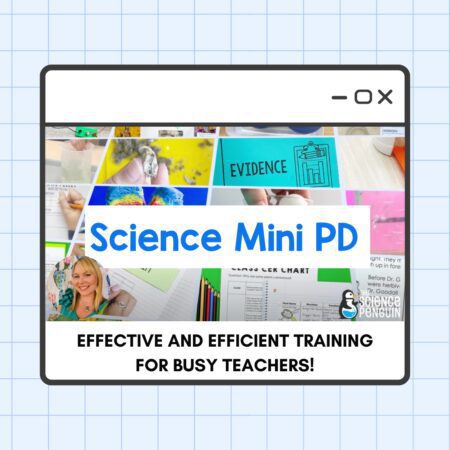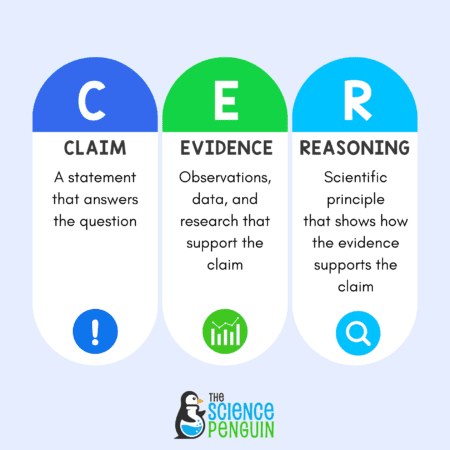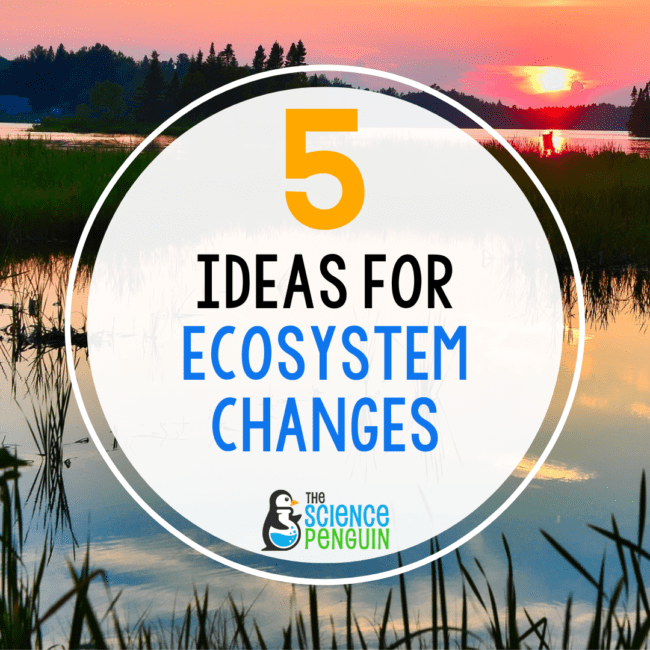
Teaching about ecosystems can be an exciting and engaging way to explore the natural world with students. Ecosystems play a pivotal role in providing balance, wonder, and survival.
From natural disasters to the earth’s surface or changes made by humans, an ecosystem can drastically change.
This blog post will offer ideas for using this knowledge to create inspiring lessons.
By the end, you’ll have the confidence to help your students better understand the interactions between the environment and how humans can affect them.
#1 Schoolyard Ecosystem

Get your students up and moving and take a tour around your schoolyard.
Students can write and draw observations to the following questions below:
- What are some changes in the schoolyard ecosystem that animals/plants may have caused?
- What are some changes in the schoolyard ecosystem that humans caused?
- Do you see evidence of natural disasters that could’ve caused a change in the schoolyard ecosystem?
#2 Digital Inquiry Lessons
With the 3rd grade TEKS, students are to describe environmental changes such as floods and droughts where some organisms can thrive and others perish or move to a new location.
Our Digital Inquiry Jr. lessons cover how various natural disasters affect ecosystems.
5th Grade focuses on predicting the effects of changes in ecosystems due to living things and human impacts such as the building of highways or overgrazing of land.
We offer a Digital Inquiry lesson that explores how humans’ use and disposal of plastic impact ocean life.
In both Digital Inquiry lessons, students work independently to collect information from multiple sources, eventually leading them to construct and develop a response that includes evidence from their notes.
Check out our Digital Inquiry Jr. Lessons on TpT: Floods and Wildfires
Check out our Digital Inquiry Lesson on TpT: Changes in Ecosystem | Plastic and the Ocean
#3 Independent Research

Invasive species can spread like wildfire, but can leave a detrimental impact on an ecosystem. My students were always curious to learn more and had many questions.
I loved allowing them to research and explore independently so they could report findings to the class.
Students would search for a particular invasive species and create a presentation about it. You can adapt it to make it an individual project or assign it as a group project.
Allowing them to make models, illustrations, songs, or videos made their creativity shine when processing and presenting their facts.
Having my students take the ownership to discuss with others the effects of an invasive species on their environment made the learning more meaningful and student-centered.
Need an introduction to invasive species? Students can get some great examples here. Check out the video by our friend, Mad Garden Science.
#4 Observation Stations
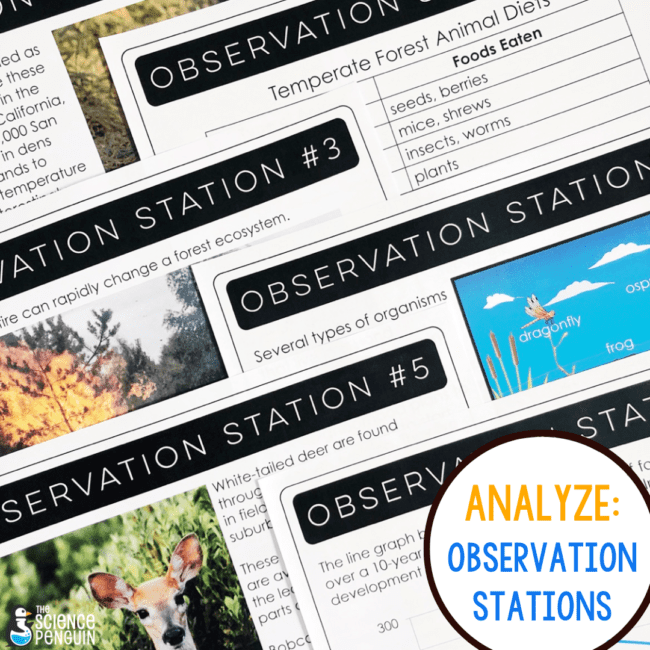
Ecosystem Changes Observation Stations allow students to analyze the environmental changes for 6 different scenarios.
This is an excellent opportunity to have your students up and moving as they Explain/Elaborate on how organisms, including humans, can cause changes in our ecosystems.
As one reviewer mentioned: “My students LOVE the Science Penguin Observation Stations. The questions are good quality and require them to analyze the information presented.”
See it on TpT: Changes in Ecosystems Observation Stations | Digital and Printable
Need it in Spanish? We have that, too! SPANISH Ecosystem Changes Observation Stations {Printable and Digital}
#5 Read Alouds

I always enjoyed reading picture books to connect the content we were learning in our unit. This gives the opportunity to bring cross-curricular connections.
Check out these books (affiliate links) to add to your library collection!
Top Teaching Tools
Access the Free Resource Library
This is an exclusive library of 40+ science printables, labs, activities, and games for grades 3-6. Sign up and check your email for immediate access.

